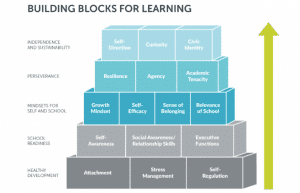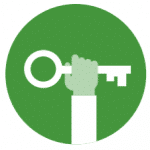Activate Student Agency and Ownership in Competency-Based Education
Education Domain Blog
This post first appeared on CompetencyWorks on November 26, 2018.
The standard reply in our field these days is “voice and choice.” Certainly, “voice and choice” is a pithy memorable phrase. It also has value in that creating opportunity for students to have voice and choice in their daily lives is a relatively easy practice to introduce in the classroom.
So let’s not throw voice and choice out. But let’s not believe that student agency is equivalent to having voice and choice in the classroom. If we do so, we are bound to fail in creating highly personalized, competency-based systems. Voice and choice is just one practice in a robust approach to helping students learn how to learn and to become lifelong learners.
The learning sciences point out that learning is something done by students, not to or for students. Students are active learners, not empty vessels waiting to have their heads filled with knowledge. This means that schools need to be organized to activate students through high engagement learning experiences, paying attention to what effectively motivates students, and helping them learn the skills they need to manage their learning.
That last part, the skills they need to manage their learning, is where it gets tricky. Developing student agency is both an input to helping students learn and an outcome. One of the three long-term goals for students within a competency-based system, along with academic knowledge and the ability to apply it, is developing lifelong learners. In The Influence of Teaching Beyond Standardized Test Scores: Engagement, Mindsets, and Agency, the authors define agency as, “the capacity and propensity to take purposeful initiative – the opposite of helplessness. Young people with high levels of agency do not respond passively to their circumstances; they tend to seek meaning and act with purpose to achieve the conditions they desire in their own and others’ lives.”
Agency is a key part of being a learner. It is the internal capability and drive to pursue learning.
Schools develop agency in students by creating:
- Opportunities for students to take responsibility with guidance and gradual release followed by…
- Opportunities for reflection, goal-setting, and the chance to continue to build the skills and habits to successfully manage their learning.
Opportunities for taking responsibility may include voice and choice. It also includes creating a transparent system of learning so students know where they are, what they need to do, what success looks like, and how to access additional support if needed. They learn to be advocates for themselves.
 Although elementary school teachers are often skilled at thinking through the mix of developmental steps of the Building Blocks for Learning (including growth mindset, self-regulation, metacognition, and perseverance), it may be new for secondary school teachers. Thus, it is worth taking the time to engage educators in reflecting on the Building Blocks of Learning and ways that opportunity for practice and reflection can be built into the learning experiences.
Although elementary school teachers are often skilled at thinking through the mix of developmental steps of the Building Blocks for Learning (including growth mindset, self-regulation, metacognition, and perseverance), it may be new for secondary school teachers. Thus, it is worth taking the time to engage educators in reflecting on the Building Blocks of Learning and ways that opportunity for practice and reflection can be built into the learning experiences.
Teachers themselves may find that they need to learn how to coach students and may even need some coaching themselves to develop their own learning skills. Becoming an effective lifelong learner isn’t something one masters, it is a journey.
The pay-off in investing in students having the Building Blocks of Learning and agency is enormous. Jennifer Denny, a teacher at Red Bank Elementary School explains, “I learned to trust kids. It was really scary at first, but I decided, ‘I’m just going to go for it – I’m all in.’ Then my students started coming up to me, asking, ‘Can I show you that I learned it?’ It is totally mind-blowing. I saw so much more growth in my students, and they were becoming confident learners.”
Read the Entire Series:
- Quality Principles for Competency-Based Education
- Purpose-Driven
- Commit to Equity
- Nurture a Culture of Learning and Inclusivity
- Foster the Development of a Growth Mindset
- Cultivate Empowering and Distributed Leadership
- Base School Design and Pedagogy on Learning Sciences
- Activate Student Agency and Ownership
- Design for the Development of Rigorous Higher-Level Skills
- Ensure Responsiveness
- Seek Intentionality and Alignment
- Establish Mechanisms to Ensure Consistency and Reliability
- Maximize Transparency
- Invest in Educators as Learners
- Increase Organizational Flexibility
- Develop Processes for Ongoing Continuous Improvement and Organizational Learning
